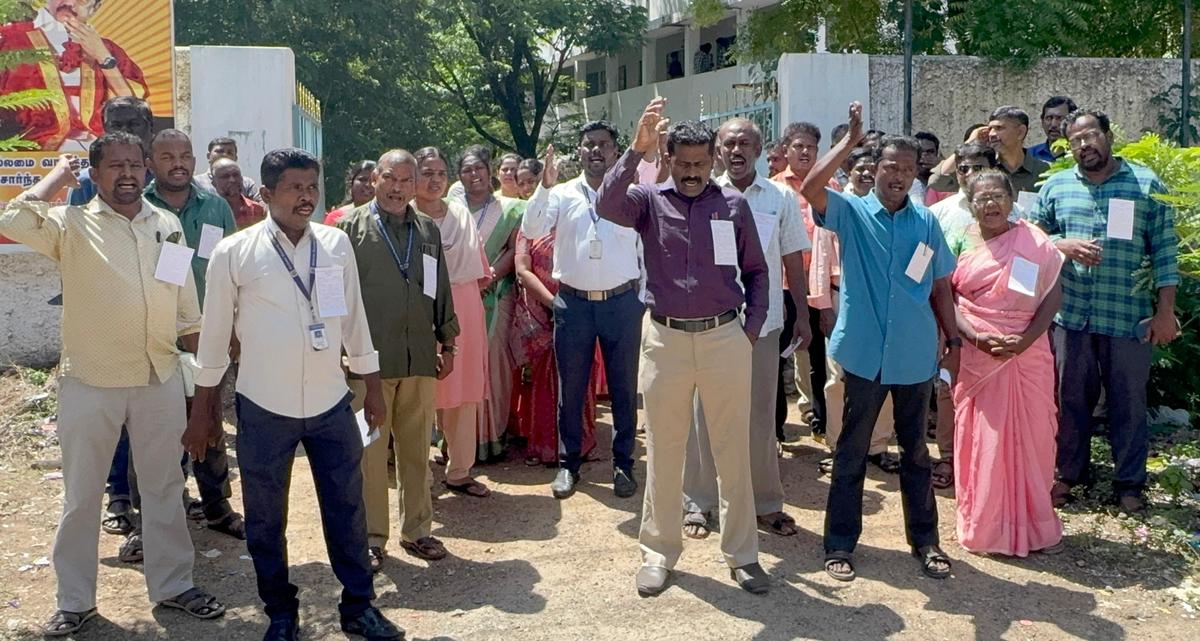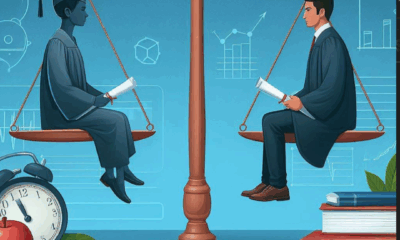Education
Voices for Fairness: MKU Teachers Launch Protest Over Unmet Demands
Madurai Kamaraj University (MKU), one of South Tamil Nadu’s most respected higher education institutions, has become the center of a new movement—not by students, but by its teachers. On September 10, 2025, the College Teachers’ Association at MKU began a week-long protest to raise their long-standing concerns about pay, working conditions, and institutional neglect. This protest is not merely about salaries; it represents deeper issues in the way higher education staff are valued and supported.
Background: Why the Protest Now?
Teachers at MKU have been voicing dissatisfaction for months. Many are employed under consolidated pay schemes, meaning they receive fixed lump-sum salaries rather than structured pay scales. According to the University Grants Commission (UGC), such consolidated teachers should be receiving ₹57,500 per month. However, MKU’s teachers claim that this standard has not been properly implemented, leaving them underpaid despite fulfilling the same responsibilities as permanent staff.
Adding to this frustration, hourly-paid teachers—who are the backbone for many departments with high student intake—have been left without fair compensation. Reports indicate that some 40 such teachers are not being paid the promised ₹300 per hour, and in some cases, payments have been pending for over half a year. For educators who already live with financial insecurity, this delay has pushed them into distress.
Core Demands of the Protest
The MKU teachers’ protest revolves around several key issues:
1. Fair Salary Implementation
Consolidated teachers demand their rightful UGC-mandated pay of ₹57,500. For them, this is not just a number but recognition of their professional contribution.
2. Payment for Hourly Teachers
Hourly-paid staff, often part-timers balancing multiple roles, seek timely disbursal of their wages. The ₹300 per hour rate is modest but critical for their survival.
3. Provident Fund Contributions
Teachers have also raised concerns about delayed provident fund (PF) deposits. For employees, PF is not only a saving but also a sign of institutional accountability. Delays raise doubts about financial management within the university.
4. Outdated Fee Payment Systems
Students are still required to pay fees through demand drafts, an inconvenient and outdated practice in today’s digital age. Teachers see this as symptomatic of the administration’s resistance to modernization.
5. Basic Infrastructure Gaps
Teachers have pointed to neglected campus facilities, such as poorly maintained buildings and the absence of separate restrooms for staff. Such lapses not only affect comfort but also dignity at the workplace.
The MKU protest is not an isolated incident. Across India, contractual and part-time teachers face precarious conditions—low wages, delayed salaries, and lack of job security. While universities celebrate academic rankings and research output, the people powering these institutions often struggle to make ends meet.
In Tamil Nadu, a state celebrated for its educational legacy, this protest is a reminder that the quality of higher education depends as much on staff welfare as it does on infrastructure or curriculum. When teachers feel undervalued, it inevitably impacts the learning environment for students.
Impact on Students
While the protest has been largely peaceful, its ripple effects are already visible. Some classes are being rescheduled or disrupted, especially in departments that rely heavily on part-time or consolidated staff. For students preparing for exams or research submissions, this creates uncertainty. However, many student groups have expressed solidarity with their teachers, recognizing that this struggle is ultimately about improving the academic ecosystem as a whole.
The Symbolism of the Protest
This protest carries symbolic weight. It highlights how teachers, often considered torchbearers of knowledge, are themselves forced to fight for basic dignity. For decades, Indian society has revered the role of the “guru,” yet in practical terms, teachers remain among the most financially insecure professionals. The MKU teachers’ protest echoes a broader call: if India wants to become a global hub of education, then the welfare of educators must be placed at the center of policy.
The Road Ahead
The administration of MKU has so far maintained silence on whether it will meet the teachers’ demands. Negotiations are expected during the week, but much depends on state government intervention, as funding and salary guidelines are tied to broader education policies.
If successful, the protest could set a precedent for other universities in Tamil Nadu and beyond, prompting overdue reforms in teacher pay and contract policies. On the other hand, if ignored, it risks demoralizing a dedicated workforce that forms the backbone of higher education.
Conclusion
The week-long protest at Madurai Kamaraj University is more than a fight for salaries—it is a fight for respect, recognition, and fairness. Teachers are demanding not luxuries but their rightful dues: timely salaries, fair wages, modern systems, and decent working conditions.
As the protest unfolds, all eyes are on the university administration and state authorities. Their response will not only decide the fate of MKU’s teachers but also signal how seriously Tamil Nadu treats its educators in an era where knowledge and innovation are critical for progress.
In the words of one protesting faculty member, “If teachers are not cared for, how can we nurture the students who will build tomorrow?”














